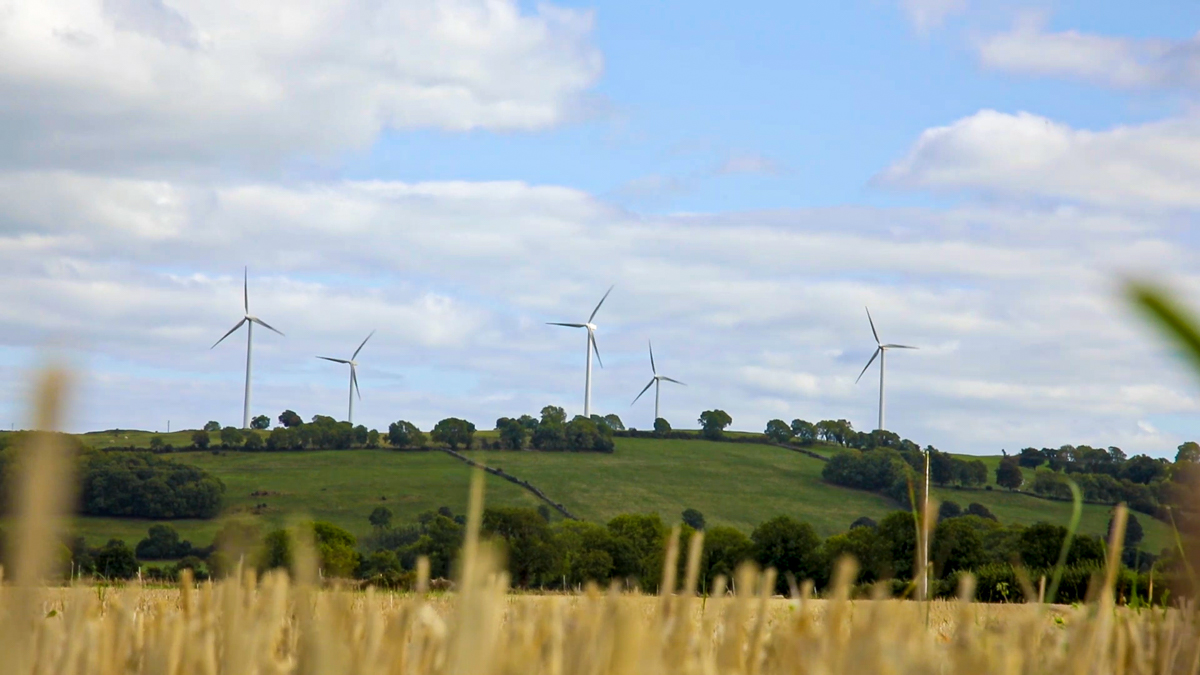In its latest report, WindEurope claims that each new wind turbine installed in Europe can generate €10 million of economic activity.
According to its CEO, Giles Dickson, investing in wind will “help Europe reset its economy”, with citizens and communities being central to the energy transition – and that wind brings revenue to rural areas, benefitting those who live near them.
“Wind energy pays €5 billion in taxes across Europe every year, often directly to deprived rural municipalities,” Dickson said.
“Many wind farms also make direct payments to communities and local organisations, offer benefits-in-kind and, in many cases, communities participate in the ownership of the local wind farm.
“Citizens and communities are central to the energy transition and wind energy plays a key role here. Wind brings revenue to rural areas. Many town halls in Europe get over 10% of their budget from the local wind farms.”
Wind farms currently pay €42.5 million directly to local councils in Ireland
In 2019, wind energy represented 300,000 jobs in the EU. 75% of these are in onshore wind and 25% in offshore wind. The European wind industry has an annual turnover of €60 billion, according to the report.
“Investing in wind will help Europe reset its economy. Each new turbine generates €10 million of economic activity; there’s a pipeline of new projects waiting to start; and the expansion of wind energy envisaged in national energy and climate plans will create 150,000 new jobs,” Dickinson continued.
“Provided governments implement their plans properly. If they don’t implement them properly, and if they don’t simplify the permitting arrangements for new wind farms, then we’ll lose jobs.”
If governments fully implement their National Energy and Climate Plans (NECPs), Europe will have over twice as much wind energy capacity as today by 2030, along with 50% more jobs in wind by 2030 – 450,000. Wind could be 30% of Europe’s electricity consumption, up from 15% today.
Wind turbines and farming
WindEurope feels that farming has a big part to play in its wind goals, with benefits for all involved.
The report says:
“Farmers traditionally used windmills for generations to pump water and mill grain. Now farmers turn to wind turbines to generate electricity on their farmland.
“Wind turbines provide a stable source of income to farmers through money earned from leasing their land to wind energy companies.
This can help protect farmers from fluctuations in commodity prices or poor crop yields resulting from droughts or floods. Farmers can also choose to reinvest in their business by purchasing new equipment or making other improvements.
According to WindEurope, no other form of power generation has “less impact on the land in which it is installed”.
“Conventional sources have important environmental impacts due to mining and contamination of adjacent waters. Other renewables require more surface for power generation, making it more challenging to combine them with agricultural activities.”
- In 2019, wind energy represented 300,000 jobs in the EU. 75% of these are in onshore wind and 25% in offshore wind;
- The European wind industry has an annual turnover of €60 billion. 65% of this adds value to the EU economy;
- The wind industry today generates €2.5 billion of value added to the EU economy for each new GW of onshore wind installed and €2.1 billion for each new GW of offshore wind;
- The wind energy industry pays €5 billion in taxes to the EU economy, including €1 billion in local taxes and other payments benefiting communities;
- European wind turbine manufacturers have a 42% share of the global market for wind turbines. Of the 10 biggest wind turbine manufacturers in the world, five are EU-based;
- There are 248 manufacturing sites of wind energy components in Europe, most of which can ramp up capacity;
- Wind farms pay €2.3/MWh in local taxes on average.
